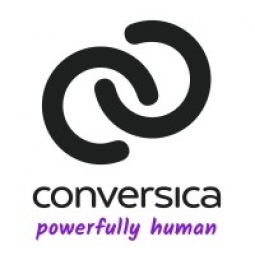Technology Category
- Application Infrastructure & Middleware - Data Exchange & Integration
- Platform as a Service (PaaS) - Application Development Platforms
Applicable Industries
- Equipment & Machinery
- Oil & Gas
Applicable Functions
- Product Research & Development
- Sales & Marketing
Use Cases
- Demand Planning & Forecasting
- Leasing Finance Automation
Services
- Cloud Planning, Design & Implementation Services
- System Integration
About The Customer
Talend is a next-generation leader in cloud and big data integration software. The company's innovative open-source solutions quickly and efficiently collect, prepare, and combine data from a wide variety of sources. This allows organizations to optimize it for virtually any aspect of their business, helping them become more data-driven. With a massive focus on data central to its business, Talend is always on the lookout for technologies that can help maximize lead generation and conversion. The company is listed on NASDAQ under the ticker symbol TLND.
The Challenge
Talend, a leader in cloud and big data integration software, faced the challenge of effectively engaging lower-quality leads to drive customer wins. The company's core business is centered around data, and they wanted to ensure that their marketing technology stack was as rigorous as their core offering. Adam Benitez, Marketing Operations Manager at Talend, was looking for new technologies that could help his team maximize lead generation and conversion. Initially, there was skepticism about Conversica, a new technology, and how it would fit into the company's overall strategy and framework. There were concerns about it being similar to Marketo, their existing marketing automation platform, and whether the investment would be a waste of time and money.
The Solution
Talend decided to test Conversica's AI Assistant, Cara Daly, against 500 leads to see how they would react and progress through the funnel. Despite initial fears, the technology proved to be seamless and effective, with a 17 percent engagement rate in the first month. The results showed that the opportunities produced and pipeline created by Conversica far outweighed the leads that did not progress. Conversica was found to complement their existing marketing automation solution, rather than competing with it. The platform was integrated into their existing sales organization, with the AI assistant handling all of their C-ranked leads. Conversica was used along with Salesforce and Marketo as part of their marketing technology stack, allowing for effective management of lead campaigns and generation of follow-up performance reports.
Operational Impact
Quantitative Benefit

Case Study missing?
Start adding your own!
Register with your work email and create a new case study profile for your business.
Related Case Studies.

Case Study
Smart Water Filtration Systems
Before working with Ayla Networks, Ozner was already using cloud connectivity to identify and solve water-filtration system malfunctions as well as to monitor filter cartridges for replacements.But, in June 2015, Ozner executives talked with Ayla about how the company might further improve its water systems with IoT technology. They liked what they heard from Ayla, but the executives needed to be sure that Ayla’s Agile IoT Platform provided the security and reliability Ozner required.

Case Study
IoT enabled Fleet Management with MindSphere
In view of growing competition, Gämmerler had a strong need to remain competitive via process optimization, reliability and gentle handling of printed products, even at highest press speeds. In addition, a digitalization initiative also included developing a key differentiation via data-driven services offers.

Case Study
Taking Oil and Gas Exploration to the Next Level
DownUnder GeoSolutions (DUG) wanted to increase computing performance by 5 to 10 times to improve seismic processing. The solution must build on current architecture software investments without sacrificing existing software and scale computing without scaling IT infrastructure costs.

Case Study
Predictive Maintenance for Industrial Chillers
For global leaders in the industrial chiller manufacturing, reliability of the entire production process is of the utmost importance. Chillers are refrigeration systems that produce ice water to provide cooling for a process or industrial application. One of those leaders sought a way to respond to asset performance issues, even before they occur. The intelligence to guarantee maximum reliability of cooling devices is embedded (pre-alarming). A pre-alarming phase means that the cooling device still works, but symptoms may appear, telling manufacturers that a failure is likely to occur in the near future. Chillers who are not internet connected at that moment, provide little insight in this pre-alarming phase.

Case Study
Premium Appliance Producer Innovates with Internet of Everything
Sub-Zero faced the largest product launch in the company’s history:It wanted to launch 60 new products as scheduled while simultaneously opening a new “greenfield” production facility, yet still adhering to stringent quality requirements and manage issues from new supply-chain partners. A the same time, it wanted to increase staff productivity time and collaboration while reducing travel and costs.








